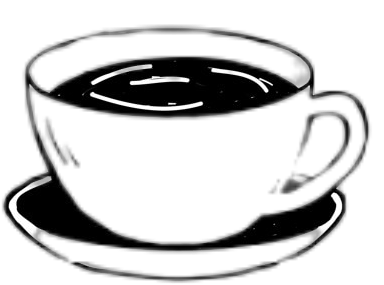
Personal Experience with Coffee Alternatives
Having explored the reasons behind the abstinence from coffee within the Mormon community, I found myself curious about the alternatives available. As someone who enjoys the ritual of a warm beverage in the morning, I sought out options that could fill that void without breaking any cultural or personal guidelines. My journey led me to various herbal teas, but I wanted something that could replicate the experience of brewing coffee, minus the caffeine.
That’s when I stumbled upon a product that piqued my interest: a high-quality herbal coffee substitute. This product claims to provide a similar flavor profile to coffee, but with the benefits of being caffeine-free. I decided to give it a try, and here’s what I found.
Brewing Experience
The first time I used the herbal coffee substitute, I was pleasantly surprised by how easy it was to brew. It resembled the process of making a traditional cup of coffee—simply add the herbal blend to a French press or a drip coffee maker, pour in hot water, and let it steep. The aroma that filled my kitchen was reminiscent of my coffee-drinking days, and I felt a wave of nostalgia wash over me.
As I sipped my first cup, I was struck by the flavor. While it didn’t taste exactly like coffee, it had rich, earthy notes that were surprisingly satisfying. The herbal blend contained ingredients like roasted chicory, barley, and dandelion, which gave it a depth I hadn’t anticipated. It made me reflect on how taste can transcend the boundaries of traditional beverages, offering new experiences that can be just as enjoyable.
Health Benefits
One of the main draws of this herbal coffee substitute was the health benefits associated with its ingredients. Unlike coffee, which can sometimes lead to jitters or disrupted sleep patterns, this blend is caffeine-free and contains antioxidants that promote overall wellness. I found it refreshing to enjoy a warm beverage without the worry of experiencing a caffeine crash later in the day.
Additionally, some of the ingredients, like dandelion root, are known for their digestive benefits. I noticed that after having a cup, I felt lighter and more energized, which was a delightful surprise. It was comforting to know I was nourishing my body while enjoying a drink that mirrored the comfort of coffee.
Versatility in Usage
Another great aspect of this herbal coffee substitute is its versatility. I found it worked beautifully in various contexts—whether as a morning pick-me-up or an afternoon relaxer. On days when I craved a cozy evening, I would brew a cup and curl up with a book, enjoying the warm, soothing flavors. It also made for a great base for creative drinks. I experimented with adding almond milk and a sprinkle of cinnamon, which elevated the experience and made it feel even more indulgent.
Social Gatherings and Community
In my quest to find a coffee alternative, I also considered the social implications of not drinking coffee in gatherings. I wanted to be able to participate in the ritual of sharing a drink with friends, and this herbal blend provided a perfect solution. When friends visited, I offered them a cup of the herbal coffee, and they were intrigued. It sparked conversations about dietary choices, health benefits, and cultural practices, creating a space for deeper connections.
While some might still miss the taste of traditional coffee, many found the herbal substitute to be a pleasant surprise. This opened the door for discussions about personal choices and encouraged a sense of acceptance around differing lifestyles.
Conclusion
As I reflect on my experience with the herbal coffee substitute, I can honestly say it has enriched my mornings and provided a satisfying alternative to coffee. It allows me to enjoy the ritual of brewing a warm beverage while respecting my cultural beliefs.
For anyone considering an alternative to coffee—whether for health reasons, personal beliefs, or simply out of curiosity—I encourage you to explore herbal substitutes. They can offer a unique flavor experience and may even surprise you with their versatility and health benefits.
In the end, the choice to drink coffee or not often reflects broader values and lifestyle choices. For me, finding a caffeine-free alternative that I enjoy has added another layer of richness to my daily routine. It’s a small but significant shift that I believe can resonate with many, regardless of their coffee-drinking habits.
Why Can't Mormons Drink Coffee: A Review
As someone who has always been intrigued by the cultural nuances surrounding food and beverage practices, I found myself diving into the topic of why Mormons, members of The Church of Jesus Christ of Latter-day Saints (LDS), abstain from drinking coffee. This seemingly simple question opens the door to a wealth of cultural, religious, and personal beliefs that shape the lives of millions. Today, I’ll share my insights on this topic, the reasons behind it, and my thoughts on whether it holds any validity in our contemporary society.
Understanding the Doctrine
The core of the issue lies in the Word of Wisdom, a health guideline set forth by Joseph Smith, the founder of the LDS Church, in 1833. This doctrine encourages members to follow a lifestyle that promotes health and wellness. It specifically advises against the consumption of alcohol, tobacco, and "hot drinks," which church leaders have interpreted to mean coffee and tea. This creates an immediate connection to the question: Why can't Mormons drink coffee?
From my perspective, this doctrine reflects a broader commitment to maintaining physical and spiritual well-being. As I delved deeper, it became clear that the avoidance of coffee is not merely about caffeine; it’s a symbol of faith and obedience to a divine commandment.
The Health Argument
One of the compelling reasons why Mormons choose to avoid coffee is related to health. Many members believe that the substances in coffee can be harmful or addictive. This is where the conversation about caffeine comes into play. Why can't Mormons drink coffee? The church's leaders have linked coffee consumption to potential health risks, promoting a lifestyle that emphasizes the importance of taking care of one’s body.
Social and Cultural Aspects
Another layer to this practice is the social and cultural implications. For Mormons, abstaining from coffee can be seen as a way to distinguish themselves from mainstream culture, creating a unique identity that bonds members together. This is particularly interesting when considering that coffee is often a social beverage, enjoyed in cafes and gatherings. By avoiding it, Mormons forge a different path, often creating their own community spaces that revolve around alternative drinks like herbal tea or hot chocolate.
The Influence of Modern Society
In today’s society, the conversation around coffee consumption is evolving. Many people view coffee as a benign, even beneficial, part of daily life, thanks to its myriad health benefits and social opportunities. This begs the question: is the Mormon practice of abstaining from coffee outdated? Why can't Mormons drink coffee? Perhaps it’s a question of balancing tradition with modernity, and many Mormons grapple with this balance daily.
Personal Experiences with Coffee Culture
Having grown up in a coffee-loving culture, I have often found myself reflecting on the warmth and community that comes from sharing a cup of coffee. I’ve had countless conversations with friends over lattes and espressos, and those moments of connection have been significant in my life. The absence of coffee from the Mormon community means that gatherings often take a different form, focused more on activities rather than shared drinks. This can lead to a unique social dynamic that’s fascinating to observe.
Pros and Cons of Abstaining from Coffee
As I explored this topic further, I couldn’t help but list out the pros and cons associated with the practice of abstaining from coffee in the Mormon faith.
Pros
- Health Focus: Encourages a lifestyle centered on health and wellness.
- Community Identity: Fosters a strong sense of belonging and identity within the community.
- Spiritual Discipline: Serves as a form of spiritual obedience and discipline.
- Alternative Options: Opens the door for a variety of caffeine-free beverages.
- Cultural Distinction: Allows Mormons to maintain a unique cultural identity in a predominantly coffee-drinking society.
Cons
- Social Isolation: May create challenges in social situations where coffee is a focal point.
- Cultural Disconnect: Can lead to feelings of exclusion from mainstream coffee culture.
Why Can't Mormons Drink Coffee? A Modern Perspective
As I ponder the reasons behind this practice, I can’t help but consider the broader implications of choosing to abstain from coffee in a society that celebrates it. Why can’t Mormons drink coffee? It boils down to a combination of faith, health, and community values. For many, these principles are non-negotiable and represent a commitment to a lifestyle that aligns with their beliefs.
Frequently Asked Questions about Why Can't Mormons Drink Coffee
What is the primary reason Mormons abstain from coffee?
Mormons abstain from coffee primarily due to the Word of Wisdom, a health guideline given by Joseph Smith in 1833, which advises against the consumption of "hot drinks," interpreted to mean coffee and tea.
Is caffeine the main concern for Mormons regarding coffee?
While caffeine is often a concern, the prohibition against coffee is more about adherence to the Word of Wisdom and maintaining a healthy lifestyle than solely focusing on caffeine intake.
What are the health benefits associated with avoiding coffee?
Avoiding coffee can lead to improved sleep patterns, reduced anxiety, and a decrease in caffeine-related jitters or crashes. Mormons often believe that abstaining from coffee promotes overall physical and spiritual health.
Do Mormons drink other caffeinated beverages?
Generally, Mormons avoid caffeinated drinks, but opinions may vary. Some may choose to drink soft drinks that contain caffeine, while others strictly adhere to the guidelines of the Word of Wisdom.
Are there any exceptions to the rule against coffee in the Mormon faith?
There are no formal exceptions, but personal interpretations of the Word of Wisdom may lead some individuals to make different choices regarding coffee and caffeine consumption.
How do Mormons respond to social situations involving coffee?
In social settings where coffee is present, Mormons may opt for alternative beverages, such as herbal tea, hot chocolate, or other non-caffeinated drinks, allowing them to participate without compromising their beliefs.
Can non-Mormons drink coffee around Mormons?
Yes, non-Mormons can drink coffee around Mormons. The practice of abstaining from coffee is a personal choice based on religious beliefs, and it does not affect the choices of those who are not part of the faith.
What alternatives do Mormons typically choose instead of coffee?
Mormons often turn to herbal teas, hot cocoa, and various caffeine-free coffee substitutes made from ingredients like chicory, dandelion root, or roasted grains to satisfy their desire for warm beverages.
